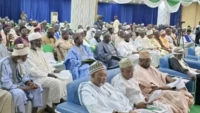Taliban authorities in northern Afghanistan arrested 14 individuals in Taloqan, the capital of Takhar province, for playing musical instruments and singing at a private gathering, an act banned under the group’s rigid interpretation of Islamic law. The provincial police stated that the group “took advantage of the nighttime to gather in a residential house,” causing a “disturbance to the public,” as reported by Punch Nigeria and Arab News. Since seizing power in 2021, the Taliban have reinstated draconian restrictions on music and entertainment, mirroring their 1996-2001 rule, labeling music as “moral corruption” and urging musicians to focus on religious chanting or Islamic poetry, per Al Jazeera and Index on Censorship. The 14 detainees are under investigation, with no further details on potential penalties disclosed.
The Taliban’s music ban has devastated Afghanistan’s cultural landscape, closing music schools, destroying instruments, and banning performances in public spaces, including weddings and media broadcasts, per South China Morning Post. Many musicians, like folk singer Fawad Andarabi, allegedly executed in 2021, have faced violence, prompting a mass exodus of artists seeking refuge abroad, per The Guardian. Despite the crackdown, some women continue discreet music sessions in private, defying restrictions, though they risk severe repercussions, including arrest or worse, per Amnesty International. In Takhar, the Taliban also banned filming “living things” in October 2024, reflecting their broader suppression of expression, per Amnesty International.
Economic hardship, with Afghanistan’s GDP contracting by 27% since 2020, compounds the plight of remaining artists, who face unemployment and persecution, per Bloomberg. The arrests highlight the Taliban’s ongoing campaign against cultural freedoms, with 336 journalists and media workers also facing arbitrary detention and torture since 2021, per UNAMA. X posts, such as @ewnupdates and @AlBawabaEnglish, express global concern, with @mynepaljapan noting the nighttime raid’s chilling effect. While some Afghans, like rubab craftsman Sakhi, persist in secret, recognized by UNESCO’s 2024 heritage listing, the Taliban’s enforcement stifles a once-vibrant musical heritage, leaving artists in fear and communities culturally impoverished, per South China Morning Post.











Leave a comment